This episode was recorded Friday, June 11, 2021. Guest Charles Pigott gratefully acknowledges the support of the Leverhulme Trust (Early Career Fellowship) and the Isaac Newton Trust.
Co-Hosts: Laura Barbas-Rhoden, Gisela Heffes
Featured Guests/Works:
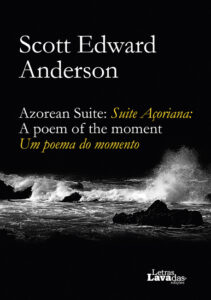 Scott Edward Anderson, Azorean Suite: A Poem of the Moment/Suite Açoriana: Um Poema do Momento
Scott Edward Anderson, Azorean Suite: A Poem of the Moment/Suite Açoriana: Um Poema do Momento
“One can be born on an island in two ways,” wrote the poet and novelist Eduardo Bettencourt Pinto. “From the body of a woman or from the radiance of sensibility.” In this bilingual, book-length poem, Azorean Suite/Suite Açoriana, award-winning poet Scott Edward Anderson explores the nature of what it’s like to be born from that radiance of sensibility of his ancestral islands. Using autobiographical elements as well as quotations from Azorean poets, scientists, and naturalists, Anderson extends the limits  of personal history and expands the poet’s emotional journey.
of personal history and expands the poet’s emotional journey.
Scott Edward Anderson is the author of Azorean Suite/Suite Açoriana (2020), Falling Up: A Memoir of Second Chances (2019), which recently received the 1st Literary Award of Letras Lavadas in conjunction with PEN Açores, the Nautilus Award-winning Dwelling: an ecopoem (2018), Fallow Field: Poems (2013), and Walks in Nature’s Empire (1995).
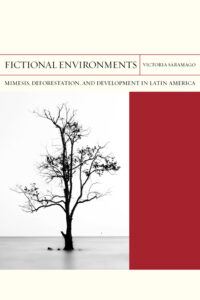 Victoria Saramago, Fictional Environments: Mimesis, Deforestation, and Development in Latin America
Victoria Saramago, Fictional Environments: Mimesis, Deforestation, and Development in Latin America
Fictional Environments: Mimesis, Deforestation, and Development in Latin America investigates how fictional works have become sites for the production of knowledge, imagination, and intervention in Latin American environments. It investigates the dynamic relationship between fictional images and real places, as the lasting representations of forests, rural areas, and deserts in novels clash with collective perceptions of changes like deforestation and urbanization.
From the backlands of Brazil to a developing Rio de Janeiro, and from the rainforests of Venezuela and Peru to the Mexican countryside, rapid deforestation took place in Latin America in the second half of the twentieth century. How do fictional works and other cultural objects dramatize, resist, and intervene in these ecological transformations? Through analyses of work by João Guimarães Rosa, Alejo Carpentier, Juan Rulfo, Clarice Lispector, and Mario Vargas Llosa, Victoria Saramago shows how novels have inspired conservationist initiatives and offered counterpoints to developmentalist policies, and how environmental concerns have informed the agendas of novelists as essayists, politicians, and public intellectuals. This book seeks to understand the role of literary representation, or mimesis, in shaping, sustaining, and negotiating environmental imaginaries during the deep, ongoing transformations that have taken place from the 1950s to the present.
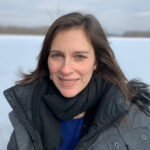 Victoria Saramago is an assistant professor of Hispanic and Luso-Brazilian studies at the University of Chicago. She is a member of the executive committee of the Modern Language Association’s Luso-Brazilian Forum, and a member of the Brazilian Studies Association executive committee. Her articles have appeared or are forthcoming in Novel: A Forum on Fiction, Luso-Brazilian Review, Ecozon@: European Journal of Literature, Culture, and Environment, Letterature d’America, Portuguese Literary and Cultural Studies, Nuevo Texto Crítico, and others.
Victoria Saramago is an assistant professor of Hispanic and Luso-Brazilian studies at the University of Chicago. She is a member of the executive committee of the Modern Language Association’s Luso-Brazilian Forum, and a member of the Brazilian Studies Association executive committee. Her articles have appeared or are forthcoming in Novel: A Forum on Fiction, Luso-Brazilian Review, Ecozon@: European Journal of Literature, Culture, and Environment, Letterature d’America, Portuguese Literary and Cultural Studies, Nuevo Texto Crítico, and others.
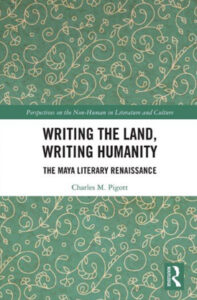 Charles Maurice Pigott, Writing the Land, Writing Humanity: The Maya Literary Renaissance
Charles Maurice Pigott, Writing the Land, Writing Humanity: The Maya Literary Renaissance
The Maya Literary Renaissance is a growing yet little-known literary phenomenon that can redefine our understanding of “literature” universally. By analyzing eight representative texts of this new and vibrant literary movement, the book argues that the texts present literature as a trans-species phenomenon that is not reducible only to human creativity. Based on detailed textual analysis of the literature in both Maya and Spanish as well as first-hand conversations with the writers themselves, Writing the Land, Writing Humanity, develops the first conceptual map of how literature constantly emerges from wider creative patterns in nature. This process, defined as literary inhabitation, is explained by synthesizing core Maya cultural concepts with diverse philosophical, literary, anthropological and biological theories. In the context of the Yucatan Peninsula, where the texts come from, literary inhabitation is presented as an integral part of bioregional becoming, the evolution of the Peninsula as a constantly unfolding dialogue.
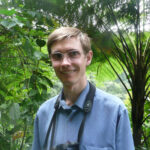 Charles M. Pigott is Associate Professor of Literature and Humanities at Universidad de las Américas Puebla in Mexico, Quondam Fellow of Hughes Hall (University of Cambridge) and Research Associate of Centre of Latin American Studies (University of Cambridge). His research explores environmental philosophies in Latin American indigenous literature, taking an interdisciplinary and translinguistic perspective in an effort to create a shared framework for the conservation of ecological, cultural and linguistic diversity.
Charles M. Pigott is Associate Professor of Literature and Humanities at Universidad de las Américas Puebla in Mexico, Quondam Fellow of Hughes Hall (University of Cambridge) and Research Associate of Centre of Latin American Studies (University of Cambridge). His research explores environmental philosophies in Latin American indigenous literature, taking an interdisciplinary and translinguistic perspective in an effort to create a shared framework for the conservation of ecological, cultural and linguistic diversity.
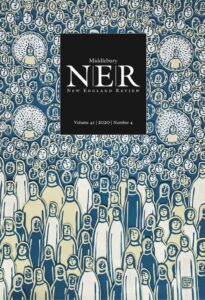 Lucien Darjeun Meadows, “Circling Eloh: A Meditation”
Lucien Darjeun Meadows, “Circling Eloh: A Meditation”
“Circling Eloh” is a lyric ethnographic essay revolving around histories of environmental trauma and reclamation. Focusing on the Colorado-Big Thompson Project (one of the US Bureau of Reclamation’s largest water diversion projects) and the creation of the Horsetooth Reservoir via, in part, the flooding of a town, this essay uses long-distance running to spiral around resonant histories of environmental survivance in Appalachia. What parallels exist between the erasure and flooding of a small Colorado town, and the coal disasters and flooding of Appalachian communities? Between memories physically erased through partial archives, and those psychologically erased through active forgetting? By shifting between critical research on the Bureau of Reclamation, environmental legislation, and ancestral and personal memories of flood and confinement as a working-class Cherokee, Lucien facilitates a meditation on these questions and their possibilities.
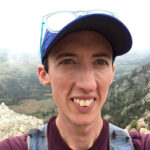 Lucien Darjeun Meadows is an English, German, and Cherokee writer born and raised in the Appalachian Mountains. He has received fellowships and awards from the Academy of American Poets, American Alliance of Museums, National Association for Interpretation, and University of Denver, where he is working toward his PhD.
Lucien Darjeun Meadows is an English, German, and Cherokee writer born and raised in the Appalachian Mountains. He has received fellowships and awards from the Academy of American Poets, American Alliance of Museums, National Association for Interpretation, and University of Denver, where he is working toward his PhD.
